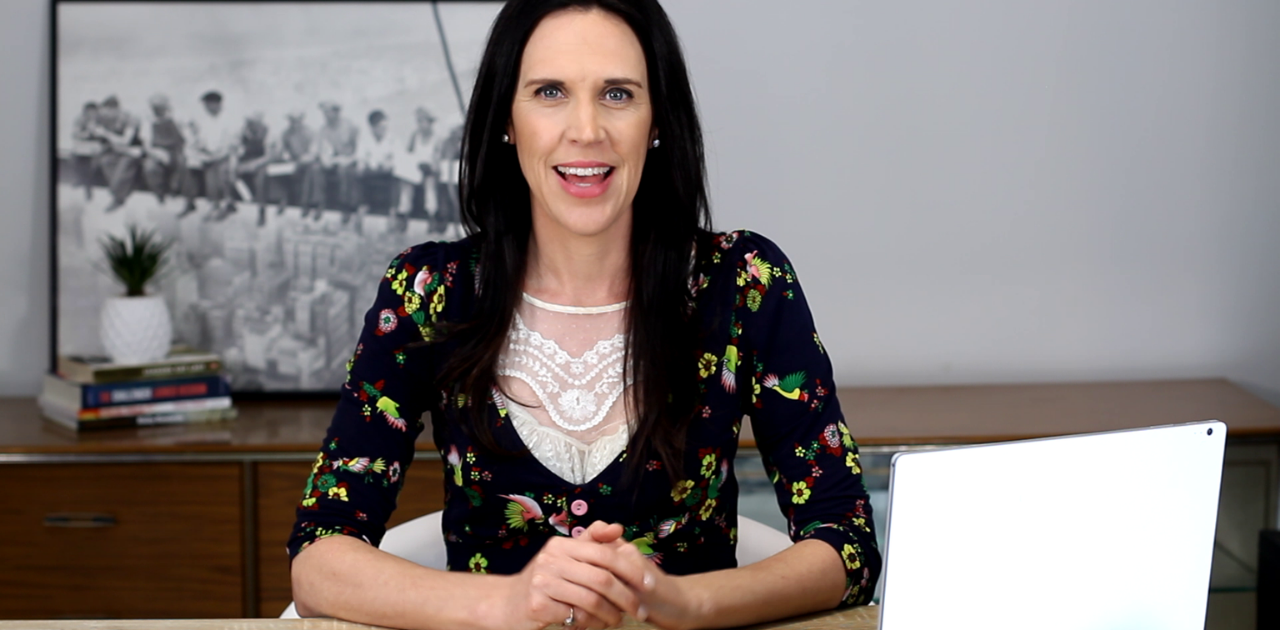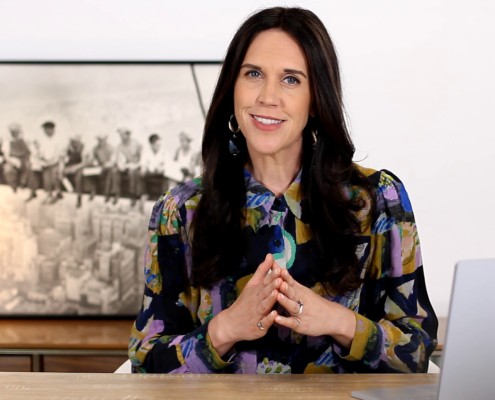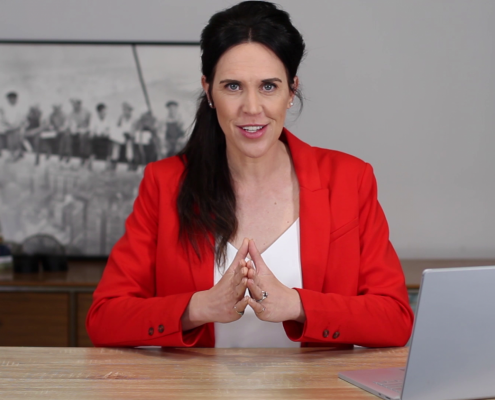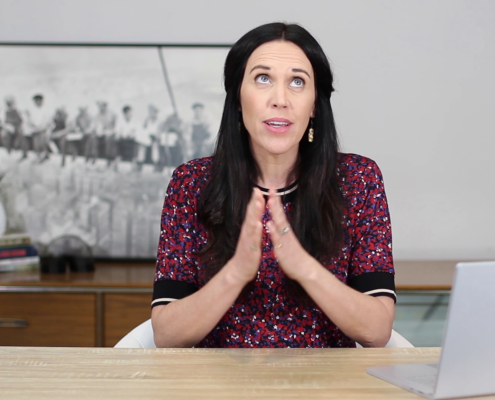Now I don’t know about you, but lately I’ve been hearing a lot more negativity from those in my circle of friends in terms of their work life, and while some of their criticisms are about the actual workload increasing, it’s more than that.
One of my friends was telling me on Monday just how good her weekend was because she didn’t open up her laptop… that has become the definition of a good weekend for her. Every weekend, without fail, she works on Sundays, and for most of Saturday she’s stressing about what she has to do on Sunday.
Prior to our Monday chat, the stress that I see her under has made her more agitated, frustrated and overall… exhausted.
And what’s even more concerning is that it’s having an impact on her personal life and her physical health.
I mean, you can appreciate this, when our partner is agitated or unapproachable, we stop approaching them. We have less conversation, less intimacy, more arguments, less time to connect and ultimately that impacts on our overall relationship.
And when we stop connecting with our friends and family, we feel more lonely.
We might start to self-medicate, so we drink more, we smoke more, we eat more, and it’s generally not healthy food we’re eating, it’s comfort food, which makes us feel good for an hour or two, but in the long term it gives us very little energy and it all contributes to this vicious cycle where we become even more agitated, frustrated and tired, and then we bring that negative energy to our work and to how we engage with our colleagues and boss.
And the cycle goes on and on. And for some it will mean … they’re on a path to job burnout and mental illness.
But on that Monday, when I spoke with her, she talked about getting an early night on Sunday instead of digging into work and staying up late, which impacts on her sleep because when she goes to bed, she can’t stop thinking about work. She talked about getting out on the Saturday and seeing friends. That Monday, she had more positivity and enthusiasm, she even laughed more in our conversation and I guarantee that changed the way she approached work on the Monday, even if it was only for half the day – that’s a win!
Blurred boundaries between work and our personal life
These blurred boundaries between our health at work and our overall personal health is something Jeffrey Pfeffer talked about in his 2018 book, Dying for a Paycheck, where he argues that “a critical topic ignored in discussions of health costs and morbidity is the role that workplace stressors have on employee health.” He declares that there are more than 120,000 excess deaths in the US each year and almost $200 billion USD in extra costs from workplace stressors.
And according to calculations by Oxford Economics, it was estimated that the UK GDP in 2015 could have been over £25 billion higher than what it was, if not for the economic consequences of mental health problems to both individuals and businesses.
In Australia, it was estimated in 2014 that the cost of severe mental illness was over $56 billion per year. This includes the direct economic costs of severe mental illness arising from the use of health and other services, as well as indirect costs due to lost productivity because people are unable to work.
This confirms that there is an unequivocal relationship between the health and well-being of our society and the health of business and the economy.
So if we accept that there’s this link, where does that leave us?
Where can you as a board member focus your efforts to better support the health and well-being of the people in your business and therefore help with not only the resilience of your business and the economy, but improve the health, happiness and resilience of the broader community.
Job strain
Pfeffer outlines 10 workplace stressors that are causing the most work-related stress. But it’s not just any stress that has a negative impact on our mental and physical health, because as you know, stress can be a good thing, in moderation.
Many of the workplace stressors that Pfeffer outlines cause what’s called job strain. And when we consistently experience job strain, it can lead to chronic stress, and that can lead to job burnout which can lead to mental illness.
You see, job strain is thought to bring about changes in our brain chemistry that have various negative effects on our mental health; such as depression, anxiety or anger. Those negative effects also launch a variety of complex attacks on our immune system, which makes us significantly more susceptible to infectious diseases, doubles or triples our risk of cardiovascular disease, increases our risk of cancer, and our use of alcohol and prescription or over-the-counter drugs and increases our risk of certain types of musculoskeletal injuries.
From Pfeffer’s list, the one I want to highlight here is ‘low organisational justice’; otherwise known as employees’ perception of fairness in the organisation.
Organisational justice
Now remember I said earlier that some of this agitation and frustration that I’m hearing from my friends and colleagues is due to an increasing workload during the COVID-19 pandemic. And an increasing workload during this pandemic is not uncommon. In a recent report by Springfox, who surveyed 500 professionals in industries including banking and finance, professional services, government, health and insurance they found that 50 per cent of respondents said their workload has increased during the COVID-19 pandemic.
But while there’s no doubt that an increasing workload can bring on stress, there are other factors involved as to why ‘workload’ can lead to job strain and it goes back to people’s perception of fairness, not necessarily the workload itself.
For example, if people perceive that there’s an inequitable distribution of workload, and they’re bearing the brunt of that inequality, then they are going to feel that the distribution of work is unfair or unjust.
Unfair / Unjust
Another example of when employees perceive unfairness is when they have low levels of control or influence over work-related decisions, such as the day-to-day organisation of their own work – what they do, when they do it, and how they do it, combined with a high workload or high levels of work demand. This will be perceived as unfair.
And when employees perceive that they’re being treated unfairly, or that they’re being exploited, this can lead to job strain and that strain, as I said earlier, can lead to job burnout; this is where we feel emotionally exhausted, we become quite cynical of things, and we begin to think quite negatively of ourselves.
Now this hits home for me because here I am watching my friends feel emotionally exhausted, and I’m listening to not only the cynicism they have towards their boss and their boss’ leadership, but also how they’re talking about their contribution to their team or the work they’re doing … they’re really hard on themselves / veering on thinking negatively of themselves. So for me, there’s this real risk that my friends are on the path to job burnout and potentially developing a mental injury because of the job strain they’re experiencing.
And I’m sure at some point in your career, you’ve seen these symptoms as well with one of your friends or colleagues.
What’s interesting in all of this, is that our perception of unfairness comes from a predisposing belief that, to a significant extent, unfair work conditions have come about not by chance, but by choice. As humans, we have a predisposing belief that organisational leaders have chosen to be unfair in the way they design and organise work. And when we believe that alternative choices could be made that reduce the injustice that we perceive is happening, especially where there’s no economic loss to our employer, we’re more inclined to think of our situation as unfair.
So what does that mean for you as a board member? What can you do?
Because clearly we want to avoid job strain in the workplace … but you’re not in the workplace, you’re in an oversight role, but you do have influence. To be honest, just by understanding what job strain is and its impact on our mental and physical health will aid you in discussions with your board peers and your executive and that can have a trickle down effect in people thinking differently.
3 tips for board members
Here are 3 tips to using your influence to facilitae a discussion around job strain through your role on the board:
- Firstly, focus on fairness in your monitoring activities (like in your employee engagement surveys) or the design of your 360 feedback. Are there any questions that tackle fairness and equality, particularly in the distribution of work? I’d also encourage you to think about fairness when you’re reviewing or approving policies, consider how people will perceive the fairness of the policy.
- Secondly, when you’re conducting your board site visits, observe how people are treated …. do you see a difference in the respect and dignity given to lower level employees as opposed to managers, or yourself for that matter? One of the best and simplest examples I’ve seen in creating fairness in the workplace, is the removal of assigned parking spaces for senior management. That is a real signal of equality. But when you’re on site, look at whether you’re complying with the same rules that any other visitor, employee or contractor has to comply with. Make a point of knowing those rules beforehand, otherwise the moment is lost when you’re there and you’re not prepared.
- Thirdly, understand the process for allocating resources (such as budgets or rewards). Are there fair and clear guidelines that determine their allocation? And are those guidelines communicated to employees?
Remember that our perception is powerful, and plays a big role in our emotions which play a role in our mental and physical health.
As always, I hope this has helped you in your quest to know What to Ask and When to Act.
Thanks for watching!
Sam
Be Curious. Be Kind. Be Brave.
Welcome!
I’m Samantha
I help board members succeed in the boardroom and make a positive impact on the health, happiness and resilience of society through their effective leadership and governance of safety, health and well-being.
RESOURCES
YOU MAY ALSO LIKE…
FEATURED CONTENT
[text-blocks id=”4249″ plain=”1″]








Let us know what you have to say:
Want to join the discussion?Your email address will not be published.